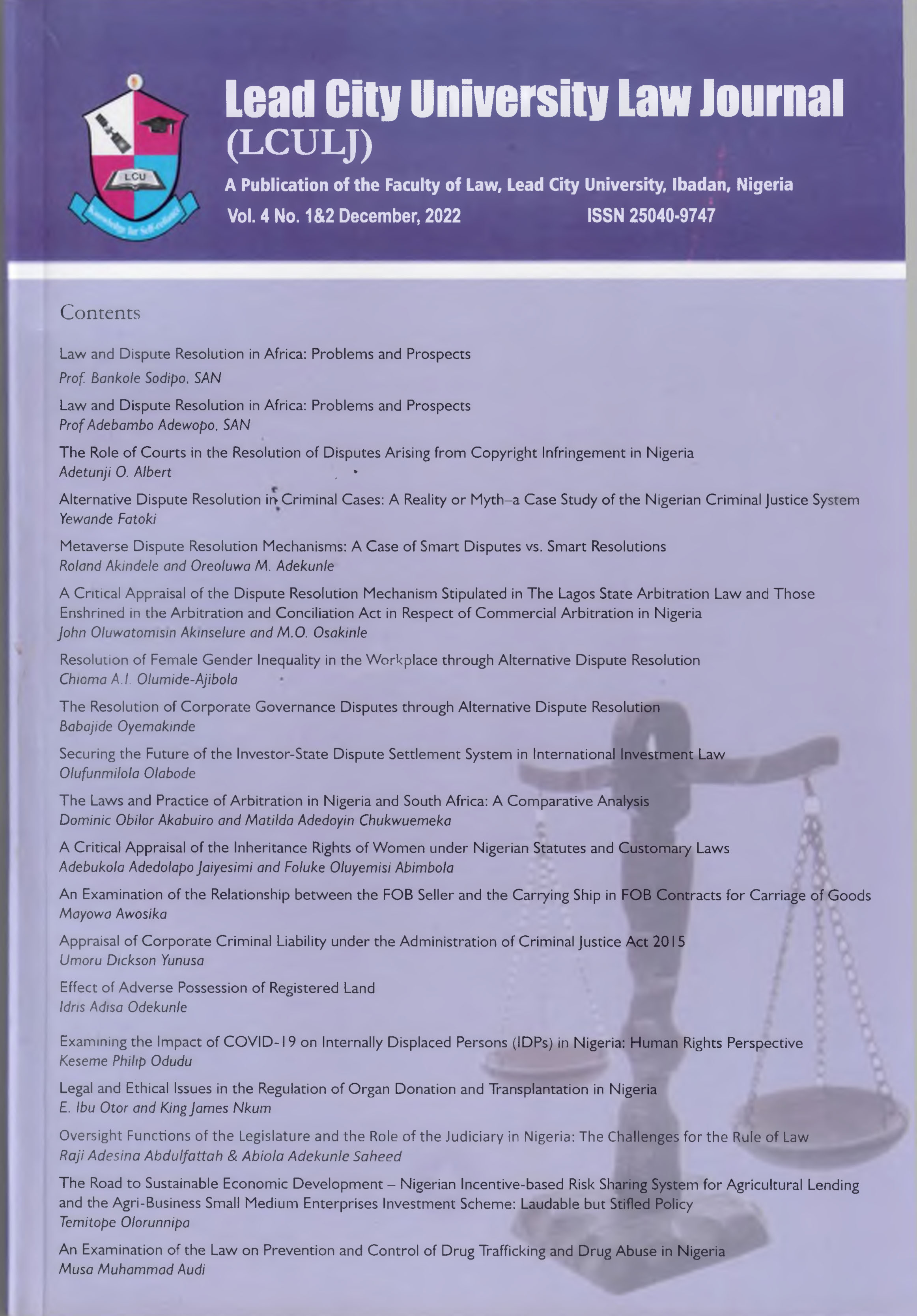A CRITICAL APPRAISAL OF THE INHERITANCE RIGHTS OF WOMEN UNDER NIGERIAN STATUTES AND CUSTOMARY LAWS
Keywords:
Women’s Rights, Customary Law, Inheritance, discrimination, StatutesAbstract
law governing the conduct of Nigerians. These systems include the civil law inherited from the
British during and after colonialism, customary laws/cultural practice which were already in
existence before colonialism and religious laws (Christian and Islamic laws). Thus, these different
systems can be divided into two major systems of law which are: first, statutory laws enacted by
the legislative arm of government along with the received English Law including statutes of
general application enacted before 1900 and second, customary laws. Religious laws run parallel
with customary laws but are not regarded as customary as customary law is wider and pertains to
all from a particular tribe notwithstanding their diverse religious beliefs. As some of the customs
tend to subjugate the rights of women to inherit what rightfully belongs to them, this paper aims
to examine the statutes enacted by the Legislative arm of government and customary laws of
inheritance in Nigeria and propose the eradication of laws that are either archaic or violate the
rights of women with respect to inheritance of either their late husband’s estate or their late
father’s estate. This paper will also recommend that as women’s rights are human rights, any
customary law that deprives a woman of her inheritance rights according to international human
rights law should be declared discriminatory and statutes should be enforced in the interest of
justice.

